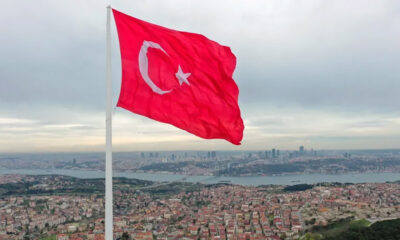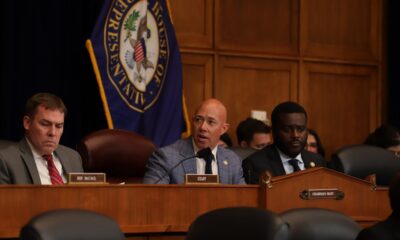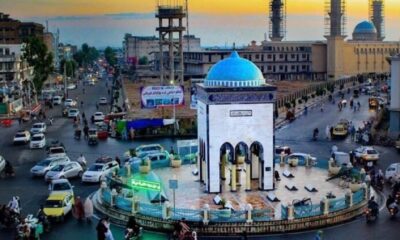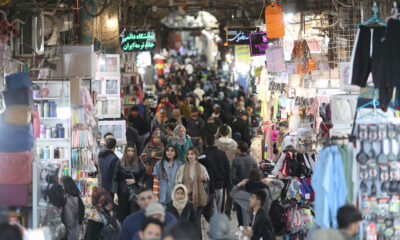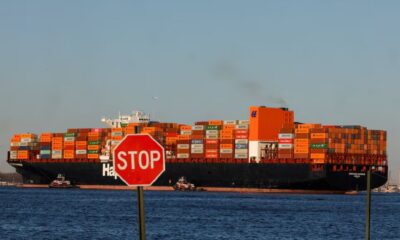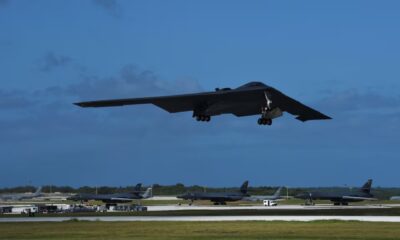Regional
Death toll from earthquakes in Turkey and Syria passes 20,000
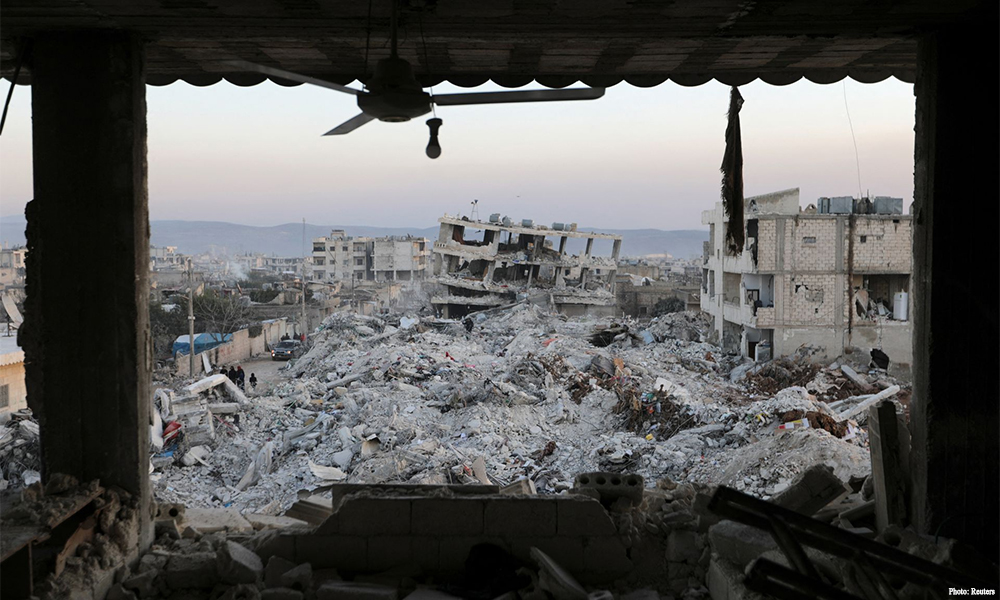
Cold, hunger and despair gripped hundreds of thousands of people left homeless after the earthquakes that struck Turkey and Syria three days ago as the death toll passed 20,000 on Thursday, Reuters reported.
The rescue of a 2-year-old boy after 79 hours trapped in the rubble of a collapsed building in Hatay, Turkey, and several other people raised spirits among weary search crews. But hopes were fading that many more would be found alive in the ruins of towns and cities.
According to Reuters the death toll across both countries has now surpassed the more than 17,000 killed in 1999 when a similarly powerful earthquake hit northwest Turkey.
A Turkish official said the disaster posed “very serious difficulties” for the holding of an election scheduled for May 14 in which President Tayyip Erdogan has been expected to face his toughest challenge in two decades in power.
With anger simmering over delays in the delivery of aid and getting the rescue effort underway, the disaster is likely to play into the vote if it goes ahead.
The first U.N. convoy carrying aid to stricken Syrians crossed over the border from Turkey.
In Syria’s Idlib province, Munira Mohammad, a mother of four who fled Aleppo after the quake, said: “It is all children here, and we need heating and supplies. Last night we couldn’t sleep because it was so cold. It is very bad.”
Hundreds of thousands of people in both countries have been left homeless in the middle of winter. Many have camped out in makeshift shelters in supermarket car parks, mosques, roadsides or amid the ruins, often desperate for food, water and heat, read the report.
Some 40% of buildings in the Turkish city of Kahramanmaras, epicentre of the tremor, are damaged, according to a preliminary report by Turkey’s Bogazici University.
ROADSIDE CAMPFIRES
At a gas station near the Turkish town of Kemalpasa, people picked through cardboard boxes of donated clothes. In the port city of Iskenderun, Reuters journalists saw people huddled round campfires on roadsides and in wrecked garages and warehouses.
Authorities say some 6,500 buildings in Turkey collapsed and countless more were damaged, Reuters reported.
The death toll in Turkey rose to 17,406, Health Minister Fahrettin Koca said. In Syria, already devastated by nearly 12 years of civil war, more than 3,300 people have died, according to the government and a rescue service in the rebel-held northwest.
In the devastated Syrian town of Jandaris, Ibrahim Khalil Menkaween walked in the rubble-strewn streets clutching a white body bag. He said he had lost seven members of his family, including his wife and two of his brothers.
“I’m holding this bag for when they bring out my brother, and my brother’s young son, and both of their wives, so we can pack them in bags,” he said. “The situation is very bad. And there is no aid.”
Turkish officials say some 13.5 million people were affected in an area spanning roughly 450 km (280 miles) from Adana in the west to Diyarbakir in the east. In Syria, people were killed as far south as Hama, 250 km from the epicenter, Reuters reported.
Rescue crews looked for survivors at the site of a collapsed building in the dark in the city of Adiyaman with temperatures below freezing, Turkish broadcasters showed.
Teams frequently called for silence, asking all vehicles and generators to be turned off and reporters to keep quiet as they listened for sounds of anyone alive under the concrete blocks.
There were still some signs of hope.
A 2-year-old boy was picked out of the rubble by a Romanian and Polish rescue team in Hatay 79 hours after the earthquake, video released by Turkey’s Humanitarian Relief Foundation (IHH) on Thursday showed.
The boy, wearing a blue, white and black striped sweater, cried as he was gently lifted from the hole where he had been trapped. He was carried away on a blanket. No other details were immediately available.
Another video from IHH showed a helmeted and dust-streaked rescuer weeping with emotion after successfully freeing a little girl from the rubble of a collapsed building in Kahramanmaras, read the report.
Many in Turkey have complained of a lack of equipment, expertise and support to rescue those trapped – sometimes even as they could hear cries for help.
After facing criticism over the initial response, Erdogan said on a visit to the area on Wednesday that operations were now working normally and promised no one would be left homeless.
Nevertheless, the disaster will pose an additional challenge to the long-ruling president in the election.
Greece sent thousands of tents, beds and blankets on Thursday to help those left homeless by the quake, in an act of solidarity with a neighbour that is a NATO ally but also a historic foe.
Israeli satellite intelligence was helping map the disaster zones in Turkey with mapping capabilities predominantly used for special operations, the Israeli military said.
SYRIA OVERWHELMED
In Syria, relief efforts are complicated by a conflict that has partitioned the country and wrecked its infrastructure.
The U.N. aid convoy entered Syria at the Bab Al Hawa crossing – a lifeline for accessing opposition-controlled areas where some 4 million people, many displaced by the war, were already relying on humanitarian aid.
U.N. Secretary-General Antonio Guterres pushed for more humanitarian access to northwestern Syria, saying he would be “very happy” if the United Nations could use more than one border crossing to deliver help, Reuters reported.
The Syrian government views the delivery of aid to the rebel-held northwest from Turkey as a violation of its sovereignty and territorial integrity.
Syrian civil defence said at least 2,030 people were killed in opposition-held northwest Syria, and the government has reported 1,347 deaths, read the report.
Syria’s ambassador to the United Nations on Wednesday admitted the government lacked capability and equipment but blamed the war and Western sanctions.
Syrian President Bashar al-Assad has chaired emergency meetings on the earthquake but has not addressed the nation in a speech or news conference.
Regional
Anxious Iranians hope nuclear talks may ease risk of US attack
Many people in Iran to whom Reuters spoke by phone remained pessimistic about the future.
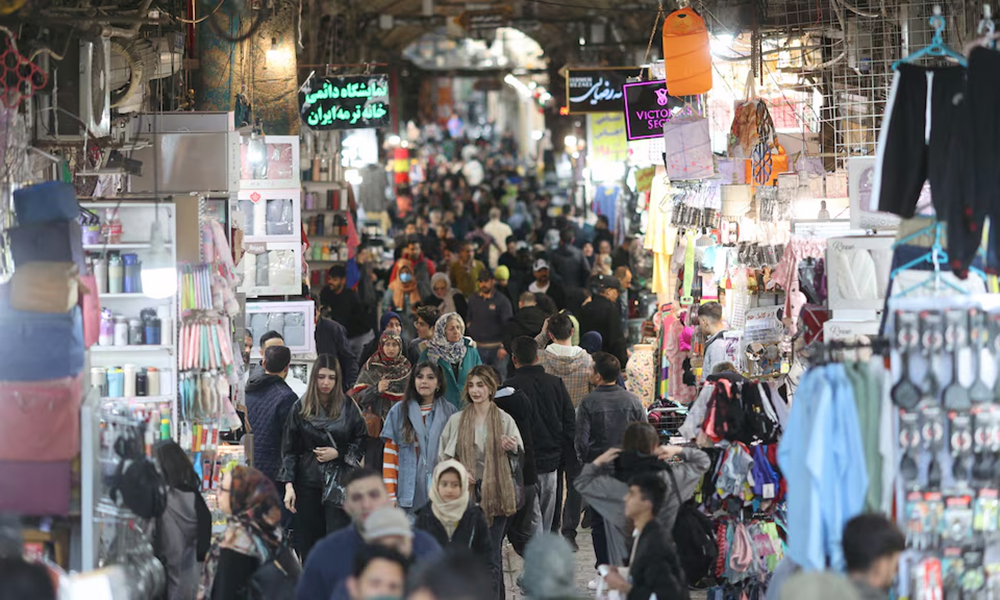
Weary from long years of biting sanctions and worried about U.S. threats of military action, Iranians have responded to the prospect of talks this weekend with expressions of hope that have boosted their stock market and depressed currency, Reuters reported.
The U.S.-Iranian talks in Oman are to address the long dispute between Iran and the West over its nuclear programme, though Iranian officials are sceptical of progress and U.S. President Donald Trump has repeatedly threatened to bomb if no deal is reached.
Many people in Iran to whom Reuters spoke by phone remained pessimistic about the future. But even the slim chance of a deal with an unpredictable U.S. president who has often boasted of his negotiating skills has given some people a little optimism.
Trump announced the talks on Monday. By Wednesday Iran’s rial currency, which had sunk to a record low of 1,050,000 to the dollar and whose value often tracks Iran’s geopolitical shifts, had strengthened slightly to 999,000 to the dollar.
Tehran’s stock exchange rose by 2.16% on Tuesday, its best performance since January, as investors shifted from safe havens in gold and foreign currency to domestic shares. The market had risen by another 1.1% in early trading on Wednesday.
Iran has had tense relations with Western powers and other major countries for much of the decades since its 1979 Islamic Revolution, particularly since 2003 when the dispute over its uranium enrichment programme moved to centre stage, read the report.
“For years, we have suffered over this dispute. It is time to end this standoff. We want to live a normal life with no hostilities and particularly no economic pressure,” said Amir Hamidian, a retired government employee in Tehran.
“I don’t want my country to be bombed … Life is already too expensive. My purchasing power is shrinking every day,” said the father of three, whose monthly salary equates to about $120.
Despite their tough rhetoric, the Islamic Republic’s clerical establishment feels compelled to agree to talks because of fears that anger over the deteriorating economy could spark protests, four Iranian officials told Reuters in March.
Economists believe that sanctions relief could lower import costs and boost export prices for Iranian firms, but wary investors are sticking to short-term bets amid doubt over the outcome of the talks scheduled for Saturday.
Many ordinary Iranians, who have seen repeated fruitless efforts to resolve the government’s standoff with the West, voiced little faith in the outcome of the discussions, Reuters reported.
Minou, a 32-year-old housewife and mother of two in the central city of Isfahan, was pessimistic.
“There will be no deal. There is a huge gap between the sides. Trump is going to bomb us. What should we do? Where should we go? I have withdrawn all my savings from the bank to have cash at home if the U.S. or Israel attack Iran,” she said.
Trump has signalled the renewal of his “maximum pressure” approach to Tehran, which during his first term in 2017-21 helped crash Iran’s economy with sanctions on its oil exports though it has also found ways to evade the embargo.
President Masoud Pezeshkian has repeatedly said the sanctions have made Iran’s economic problems more challenging even than during the Iran-Iraq war in the 1980s.
“I am worried to death. Enough is enough. Just reach a deal and end our misery,” said Mahsa, 22, a university student in the northern city of Sari.
Since 2017, Iranians have staged periodic nationwide demonstrations over poor living standards, calling for “regime change”.
But some hardliners are putting their faith in Supreme Leader Ayatollah Ali Khamenei, who – in the Islamic Republic’s complex power structure – has the final say on matters of state.
“Our Supreme Leader is fully aware of the situation and he will lead us out of trouble. Whatever he decides, we will support it,” said Mohammad Amin Hosseini, 27, from the northeastern city of Mashhad.
Regional
Are B-2 bombers a message to Iran? ‘We’ll let them decide,’ Pentagon chief says
Trump on Wednesday repeated a threat to use military force if Iran did not agree to end its nuclear program.
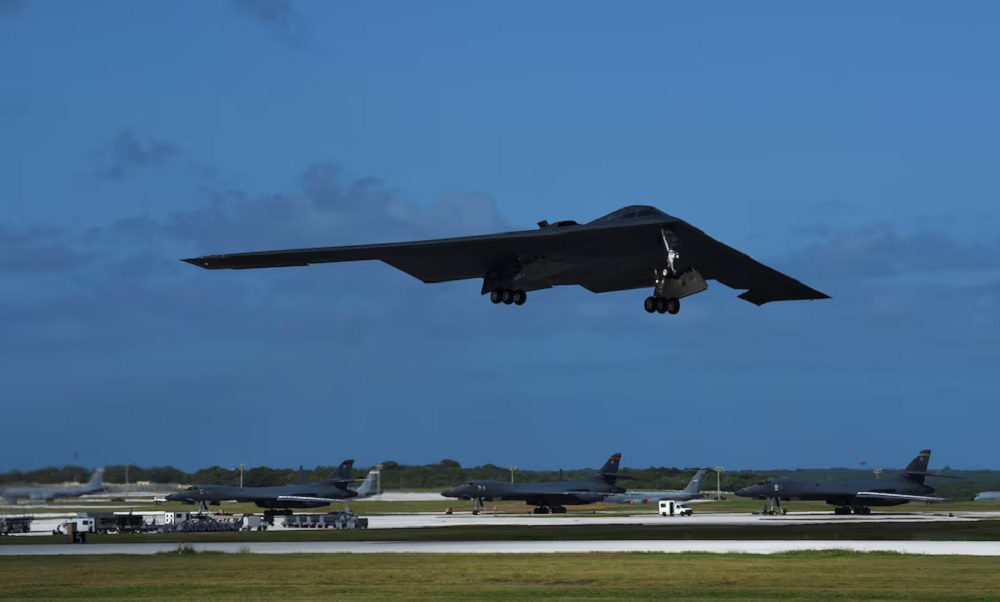
U.S. Defense Secretary Pete Hegseth said it was up to Iran to decide whether the recent U.S. movement of B-2 bombers was a message to Tehran, as he voiced hope that U.S.-Iran negotiations over Tehran’s nuclear program could be resolved peacefully.
As many as six B-2 bombers relocated in March to a U.S.-British military base on the Indian Ocean island of Diego Garcia, U.S. officials have told Reuters, amid a U.S. bombing campaign in Yemen and mounting tensions with Iran, Reuters reported.
There are only 20 B-2 bombers in the Air Force’s inventory so they are usually used sparingly.
Experts say that puts the B-2s, which have stealth technology and are equipped to carry the heaviest U.S. bombs and nuclear weapons, in an ideal position to operate in the Middle East.
Asked if the B-2s were meant to send a message to Iran, Hegseth said: “We’ll let them decide.”
“It’s a great asset … it sends a message to everybody,” he told reporters during a trip to Panama.
“President Trump’s been clear … Iran should not have a nuclear bomb,” he said. “We very much hope – the President is focused on doing that peacefully.”
Trump on Monday made a surprise announcement that the United States and Iran were poised to begin direct talks on Tehran’s nuclear program on Saturday, warning that Iran would be in “great danger” if the talks were unsuccessful.
Iran, which had pushed against Trump’s demands in recent weeks, said indirect talks would be held in Oman, underscoring the differences between the two countries.
Trump on Wednesday repeated a threat to use military force if Iran did not agree to end its nuclear program.
“I’m not asking for much … but they can’t have a nuclear weapon,” Trump told reporters. “If it requires military, we’re going to have military. Israel will, obviously, be … the leader of that. No one leads us. We do what we want.”
He declined to address when any military action could begin.
Although B-2 bombers have been employed to strike Houthi targets in Yemen in the past, most experts say use of the stealthy bomber is overkill there.
However, the B-2 is equipped to carry America’s the 30,000-pound GBU-57 Massive Ordnance Penetrator, designed to destroy targets deep underground. That is the weapon that experts say could be used to strike Iran’s nuclear program.
Western powers accuse Iran of having a clandestine agenda to develop nuclear weapons by enriching uranium to a high level of fissile purity, above what they say is justifiable for a civilian atomic energy program.
Tehran says its nuclear program is wholly for civilian energy purposes.
Regional
US energy secretary sees tighter sanctions on Iran without deal
Wright said he does not think European countries will want to return to Russia for their energy supplies when the war in Ukraine ends.
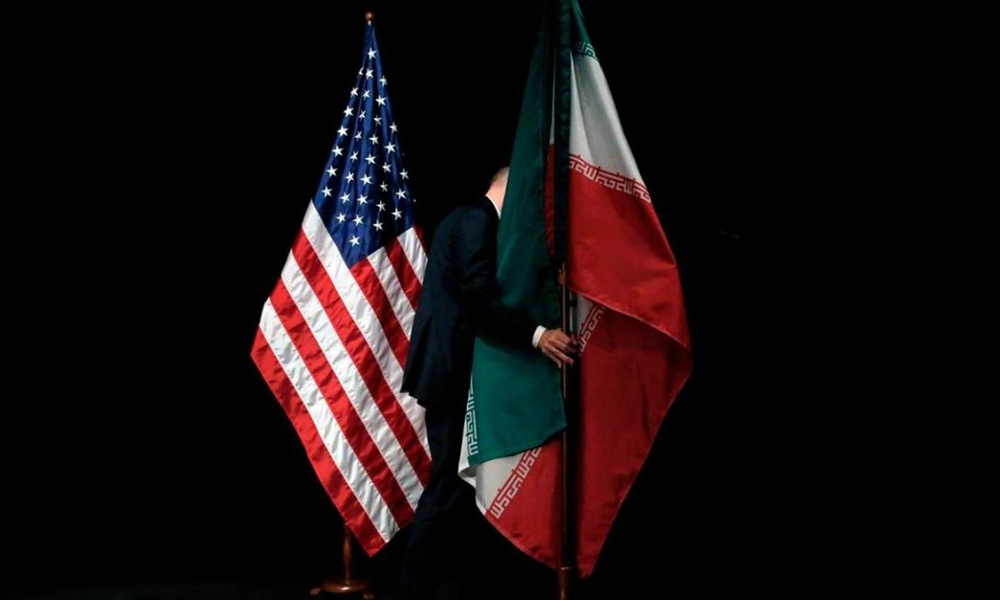
U.S. Energy Secretary Chris Wright said on Tuesday that Iran can expect tighter sanctions if it does not come to an agreement with President Donald Trump on its nuclear program, Reuters reported.
“So absolutely, I would expect very tight sanctions on Iran, and hopefully drive them to abandon their nuclear program,” Wright said in an interview with CNBC.
Wright on Wednesday will launch a nearly two-week tour of three Middle East countries, including Saudi Arabia, marking his first visit as a U.S. official to the de facto leader of the Organization of the Petroleum Exporting Countries, a source familiar with the matter told Reuters.
Wright also defended Trump’s executive order, expected later on Tuesday, to boost the coal industry as essential for artificial intelligence data centers, as well as steel production and other industrial activities.
“We need a growing supply of electricity to hit the AI boom and also for this re-industrializing of the United States. If we want to grow America’s electricity production meaningfully over the next five or 10 years, we’ve got to stop closing coal plants,” Wright said in the interview.
Asked about Trump’s comment that the European Union should buy more energy from the United States, Wright said he has had countries in Asia, in Europe and elsewhere reach out to express interest in buying more American energy.”
Wright said he does not think European countries will want to return to Russia for their energy supplies when the war in Ukraine ends.
“As I talk to European leaders, one thing they all share is a regret that they bet their energy future on Russia,” he said. “So I don’t think there’s a huge desire right now that, when the war is over, we’re going to we’re going to re-count on Russia for a dominant share of our energy supply. I think that’s very unlikely to unfold.”
-
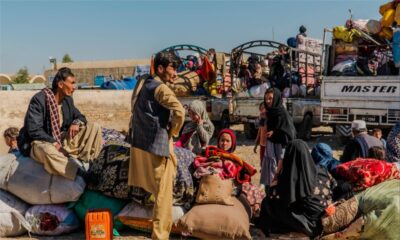
 Latest News4 days ago
Latest News4 days agoUN rights experts call on Pakistan to stop removal process of Afghan refugees
-

 Science & Technology4 days ago
Science & Technology4 days agoMeta releases new AI model Llama 4
-
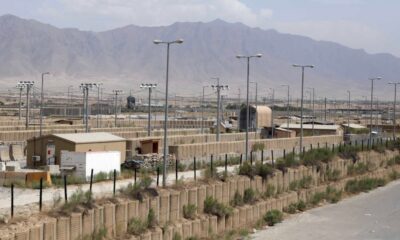
 Latest News3 days ago
Latest News3 days agoIEA rejects reports of US military planes landing at Afghanistan’s Bagram Air Base
-
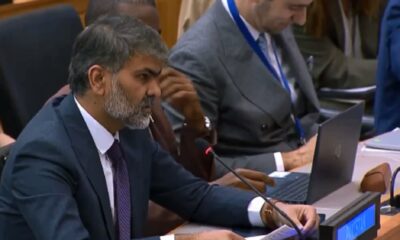
 Latest News5 days ago
Latest News5 days agoPakistan urges global community to block arms flow to militant groups in Afghanistan
-
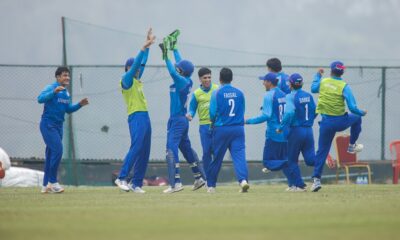
 Sport4 days ago
Sport4 days agoAfghanistan Under-19s beat Nepal by 1 run in second ODI, win series
-

 World4 days ago
World4 days agoAnti-Trump protesters gather in Washington, other US cities
-
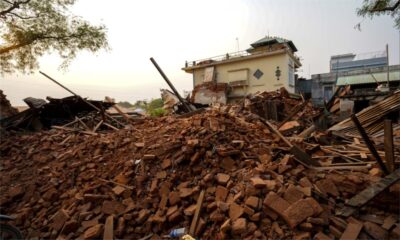
 Regional4 days ago
Regional4 days agoRains add to challenge for Myanmar quake relief, toll at 3,471
-
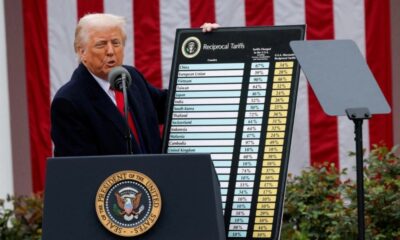
 Latest News3 days ago
Latest News3 days agoTrump’s tariff pressure on Afghanistan ‘will impact economic growth’


